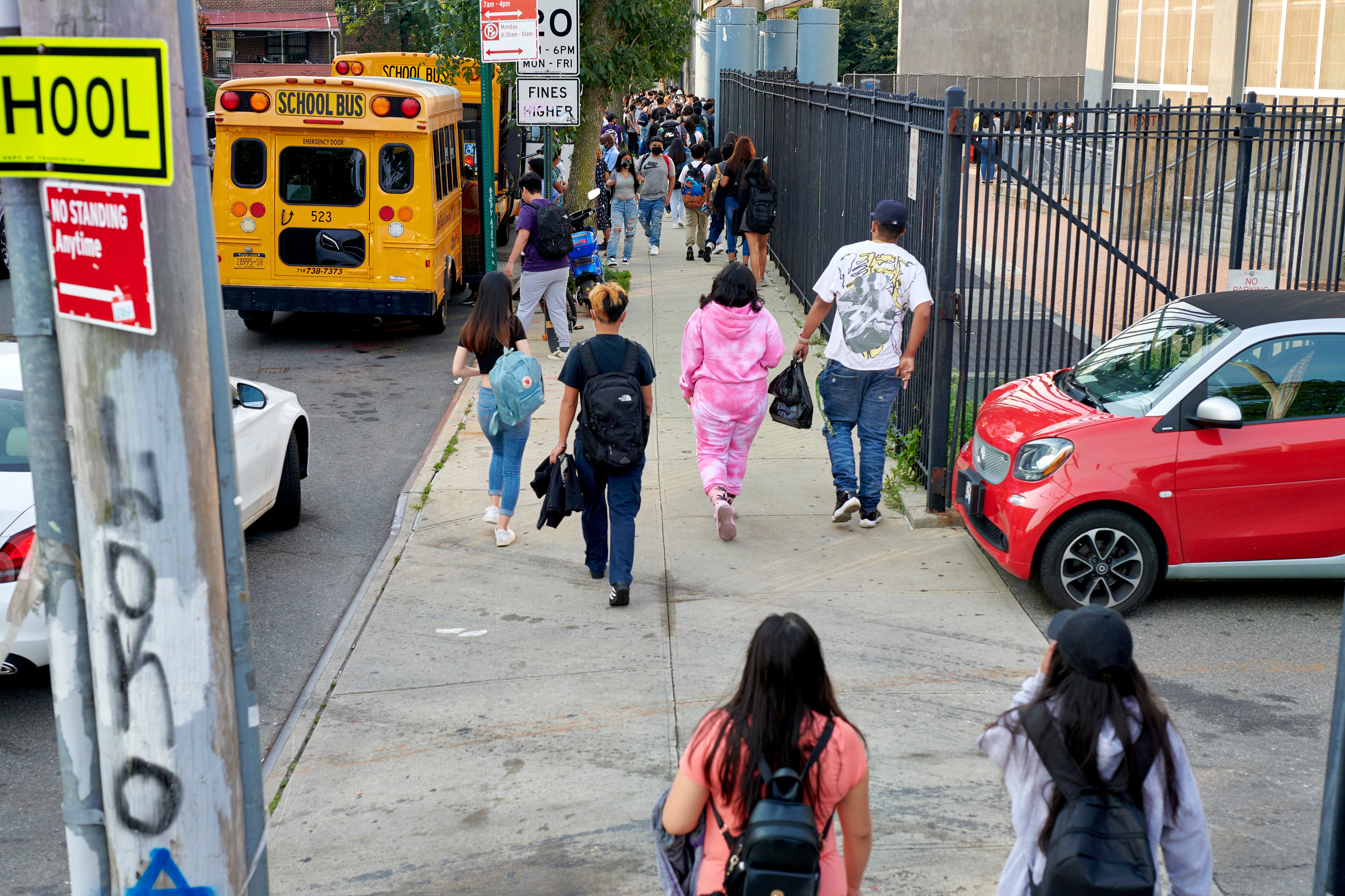Chalkbeat is a nonprofit news organization covering public education in communities across America. Sign up for our free New York newsletter to keep up with NYC’s public schools.
In the wake of an intense budget battle last year over education funding cuts, another round of spending reductions may once again impact schools.
New York City’s education department could face roughly $421 million in additional budget cuts next school year, according to the city’s Independent Budget Office — part of a sweeping set of spending reductions City Hall ordered on Tuesday.
Officials are proposing a 3% cut to the city’s share of the education department’s budget, according to a letter from city budget director Jacques Jiha obtained by Chalkbeat and first reported by the New York Daily News. Most other agencies are facing a 4% cut, but Jiha wrote the Department of Education and City University of New York are exceptions to “minimize disruptions to schools and classrooms.”
Although the entire department is slated to spend more than $30 billion next year, the 3% reduction is calculated based on the city’s contribution of about $14 billion. A City Hall spokesperson said the final number may be lower, as certain elements of the department’s budget may be exempt from cuts, but he did not provide a specific figure.
Agency heads, including schools Chancellor David Banks, have just 10 days to come up with a plan for spending reductions, which would take effect next school year.
City Hall did not rule out the possibility that individual school budgets could be reduced, saying agencies have not yet made plans about how to achieve the cuts. An education department spokesperson did not comment on Tuesday.
More details are expected later this month when the mayor typically unveils an updated version of his proposed budget, though Jiha indicated the reductions “cannot include layoffs and should avoid meaningfully impacting services where possible.” Budget experts said the city could move to eliminate positions that are already vacant and the city is already planning to do so.
The city has previously required the education department to trim its budget, including a 3% cut in city spending officials were expected to make this school year. The 3% spending reduction announced Tuesday will apply on top of those existing cuts.
The new round of budget tightening drew criticism from some education advocates, union officials, and local lawmakers, some of whom vowed to press for changes as the City Council negotiates a final budget due by July.
“Additional [cuts] will paralyze agencies, harm New Yorkers, and make it even more difficult for the city to successfully recover,” City Council Speaker Adrienne Adams and Finance Chair Justin Brannan said in a joint statement.
The city’s teachers union also blasted the proposal. “New York State has provided record levels of funding for New York City’s public schools,” Alison Gendar, a spokesperson for the United Federation of Teachers, wrote in an email. “There is no need for any cuts to our school communities. None.”
Officials indicated the reductions are necessary for a variety of reasons, including about $4.3 billion in spending this year and next linked to an influx of asylum seekers. They also pointed to a $1 billion hole linked to “cuts and cost shifts” in the forthcoming state budget, and labor agreements now under negotiation, including with the teachers union, that will require billions in additional spending in the coming years.
“We face these new needs and threats at a time when the city’s tax revenue growth is slowing, and many economists fear that stress in the banking sector increases the odds of an economic recession,” Jiha wrote.
Mayor Eric Adams faced fierce criticism last year over cuts to school budgets — pegged to enrollment declines — but initially held off on proposing even deeper cuts next school year.
His budget proposal, unveiled in January, reversed his earlier plans to cut school budgets by $80 million due to enrollment declines and evaporating federal COVID relief funding. The education department also agreed to pump about $90 million into school budgets to help support students in temporary housing and schools that serve a disproportionate share of students with disabilities, English learners, and those living in poverty. Officials did not say whether those initiatives could be affected by the latest spending reductions.
At the same time, the administration scaled back other programs in its preliminary budget, diverting $568 million in federal relief funding away from a planned expansion of preschool for 3-year-olds.
Some education advocates said they were puzzled by the city’s rationale for the cuts, arguing that an influx of migrants means that schools will need more resources to serve a particularly vulnerable population.
“It’s difficult for me to believe that we have to keep making these exacerbated cuts when we have a population that’s in significant need,” said Kaliris Salas-Ramirez, who serves on the city’s Panel for Educational Policy.
Other groups said the spending cuts are fiscally prudent.
“This action is timely, if not overdue,” Andrew S. Rein, president of the Citizens Budget Commission, said in a statement. “Any delay increases the chance that the City barrels head first into the impending fiscal wall and has to make massive cuts in the future.”
Alex Zimmerman is a reporter for Chalkbeat New York, covering NYC public schools. Contact Alex at azimmerman@chalkbeat.org.






